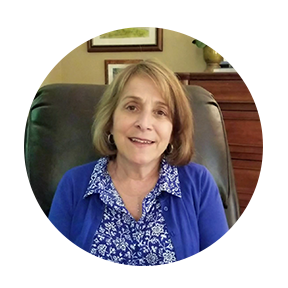What They Don’t Tell You in NEDP Training

by Nancy Companion, Lynn Winfrey, & Ann Butler
NANCY: If we were sitting down together to talk about the National External Diploma Program, these are some things we would tell you that are not covered in training and that I would like someone to have told us. This is based on many years of experience, so grab a cup of coffee and get comfortable.
First of all: NOTHING IS IRREVERSABLE, and I mean NOTHING.
In my first days as NEDP Coordinator (back in the pencil and paper days), my first client in Diagnostics missed many math problems. In those days, you had to demonstrate 100% mastery. I sent her home to practice with, what I thought, were practice sheets. I soon realized that they were the actual retest problems. In my defense, I had had only three days of training. I rushed to her house to exchange the material. I now know that we would have worked it out even if I had not realized my mistake. Again, nothing is irreversible.
Over the years there have been many of these moments, and all have been resolved. Please remember that you have a great support team in CASAS and especially in Janita. Don’t hesitate or be embarrassed to use them.
The other “rule” that I have told my Assessors, and that I have to remind myself of, is this: YOU CAN’T WANT IT MORE THAN THEY DO.
There are those who will use this opportunity to earn a high school diploma and those who will not. That’s just a fact. If K-12 had been successful, they would not be with us. It is up to the client to prioritize the NEDP. You can guide, offer suggestions, and lend a sympathetic ear, but in the end, it is up to them. I’m sure our Assessors will have more to say about that. With those “words of wisdom” I’m turning this over to them.
ANN: Here are my few additions to Nancy’s helpful tips.
As the client progresses through their NEDP work, congratulate them with praise as they complete the 25% (2/8), 50% (4/8), 75% (6/8) finish line of their NEDP work. Sharing this news gives the client motivation and encouragement for the end goal.
Assessors encourage daily work on NEDP competencies. When opening a new competency, suggest a strategy for days when they are less motivated. For example, if a client has less time, is tired, or frustrated by a more complicated NEDP section, one could complete an easier section that day. (e.g., Health-Nutrition labels-A, B, Workplace-Employee Benefits or Pay stub IOC study). SOME progress is better than NO progress for the day.
Mention the CTRL+F key on the computer keyboard to clients. Using this to locate answers in the NEDP Resource is a timesaving tool.
Resources sometimes include small text. Use the “+” key to enlarge the text. Show the client where this is found on the resource screen. This may be especially helpful if they are using a small screen device.
When opening a new competency and explaining sections, allow them to fill in a few answers while you observe. Ask if they need any further aide with directions, etc.
I have found that being overly accommodating/flexible with scheduling causes clients to delay and even cancel meetings and In-Office Checks (IOCs). Politely let clients know that assessors have other clients scheduled and missing appointments may delay appointments until the following week.
Make clients aware that free software is available to download from sites like doc.google.com or libreoffice.org. This will be beneficial for the making of charts, graphs, and other NEDP work requirements. These sites provide some of the same capabilities as Microsoft Office, Excel, Word, and PowerPoint at no cost.
I learned this from a client: When giving IOCs that require a verbal recording, the client may click the pause button at any time to organize his/her thoughts, to calm nerves, or to take a breather. This often eliminates repeated recordings. Encourage the client to keep the cursor ready on the PAUSE button. Bonus: The pauses are not detected on the final recording.
LYNN: To add to Anne and Nancy’s helpful tips:
When opening the Civic Literacy competency, go over the instructions for the different activities with the exception of the Bill of Rights and the Legal System. Once the client has made a good attempt at the assigned items, go back and explain these more rigorous activities. It can be very overwhelming to open this entire competence in one sitting.
Many students are having great success going to YouTube for instructions on things such as taking multiple page screen shots and making PowerPoint slides.
If you would like to hear more from Nancy, Anne, or Lynn and how they have made their NEDP program a success in their region, contact Nancy Companion at [email protected] or 757-727-1049.
Resources
The National External Diploma Program: A Solution for all WIOA Titles
NEDP Professionals Speak about the Program (video)
 |
Nancy Companion is the NEDP Coordinator from the Peninsula Regional Education Program. She began as an Advisor/Assessor in 1991 and became coordinator in 1993. Previously, Nancy taught high school United States history and government. |
 |
Lynn Winfrey has been with the NEDP program as an Advisor/Assessor since its beginning in 1990 as the paper-and-pencil EDP. She knows all the ins-and-outs of the NEDP Competencies. |
 |
Ann is the newest NEDP Advisor/Assessor and has been a valuable support person as the program transitioned to the all-virtual NEDP. Her technical expertise has been invaluable. She came to NEDP from the GED® program where she taught math. |